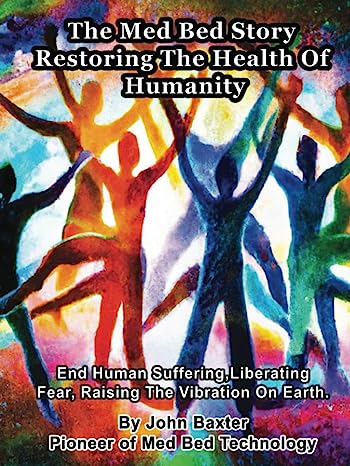As we stand on the brink of significant advancements in healthcare, the concept of "med beds" represents an intriguing glimpse into what could be the next frontier of medicine. The question on many minds is: What's next for med beds? This article explores the speculative nature of med beds, the potential they hold for transforming medical practice, and the technological and ethical challenges that lie ahead.
Understanding Med Beds
Med beds, as depicted in various speculative discussions and science fiction narratives, are advanced platforms purported to offer revolutionary diagnostic and healing capabilities. They are envisioned as devices that can seamlessly integrate multiple technologies to diagnose, treat, and potentially cure illnesses with unprecedented precision and minimal intervention.
The Vision of Med Beds
The vision behind med beds is one of radical innovation in healthcare. These devices are thought to combine elements of regenerative medicine, nanotechnology, and artificial intelligence to create a system that not only addresses symptoms but also underlying causes of diseases, potentially restoring complete physiological and possibly psychological health.
Technological Foundations and Future Developments
The journey from current medical technology to the sophisticated capabilities associated with med beds involves several key areas of development:
- Artificial Intelligence and Machine Learning: AI is expected to play a crucial role in the evolution of med beds, with advanced algorithms capable of complex medical decision-making based on comprehensive data analysis.
- Regenerative Medicine: While med beds in their most fantastical iterations suggest instantaneous regeneration, current advances are making significant strides in tissue engineering and stem cell therapy, hinting at future capabilities.
- Telemedicine and Robotics: Integration of remote care and robotic precision into med beds could facilitate surgeries and treatments that are less invasive and more accurate than current methods.
Potential Impacts on Healthcare
The implementation of med bed technologies could have far-reaching effects on the healthcare system:
- Increased Accessibility: Med beds could make high-quality healthcare more accessible by reducing the need for physical travel and enabling remote treatment, a significant advantage for rural or underserved regions.
- Cost Reduction: By potentially decreasing the need for multiple diagnostic tools, long hospital stays, and complex surgical procedures, med beds could significantly reduce healthcare costs.
- Personalized Medicine: Med beds could take personalized medicine to new heights, offering treatments tailored specifically to an individual's genetic makeup and health history.
Ethical and Regulatory Considerations
As with any groundbreaking technology, the development and implementation of med beds raise important ethical and regulatory questions:
- Privacy and Security: The extensive data required to operate med beds pose significant privacy risks, necessitating robust security measures.
- Regulatory Approval: Given their complexity, med beds would require rigorous testing and regulatory review to ensure safety and efficacy before they could be widely implemented.
- Equity and Access: Ensuring that med bed technologies are available to all segments of the population without exacerbating existing health disparities is a critical challenge.
Conclusion: What's Next for Med Beds?
While the full realization of med beds as envisioned in speculative literature remains in the future, current trends in technology and medicine suggest that many of their proposed features could become a reality. The next steps for med beds involve not only technological innovation but also careful consideration of ethical, regulatory, and social implications. As research and development continue to push the boundaries of what's possible, the concept of med beds offers a fascinating preview of the potential next era in medical science, where the lines between biology and technology increasingly blur in service of better health outcomes.




